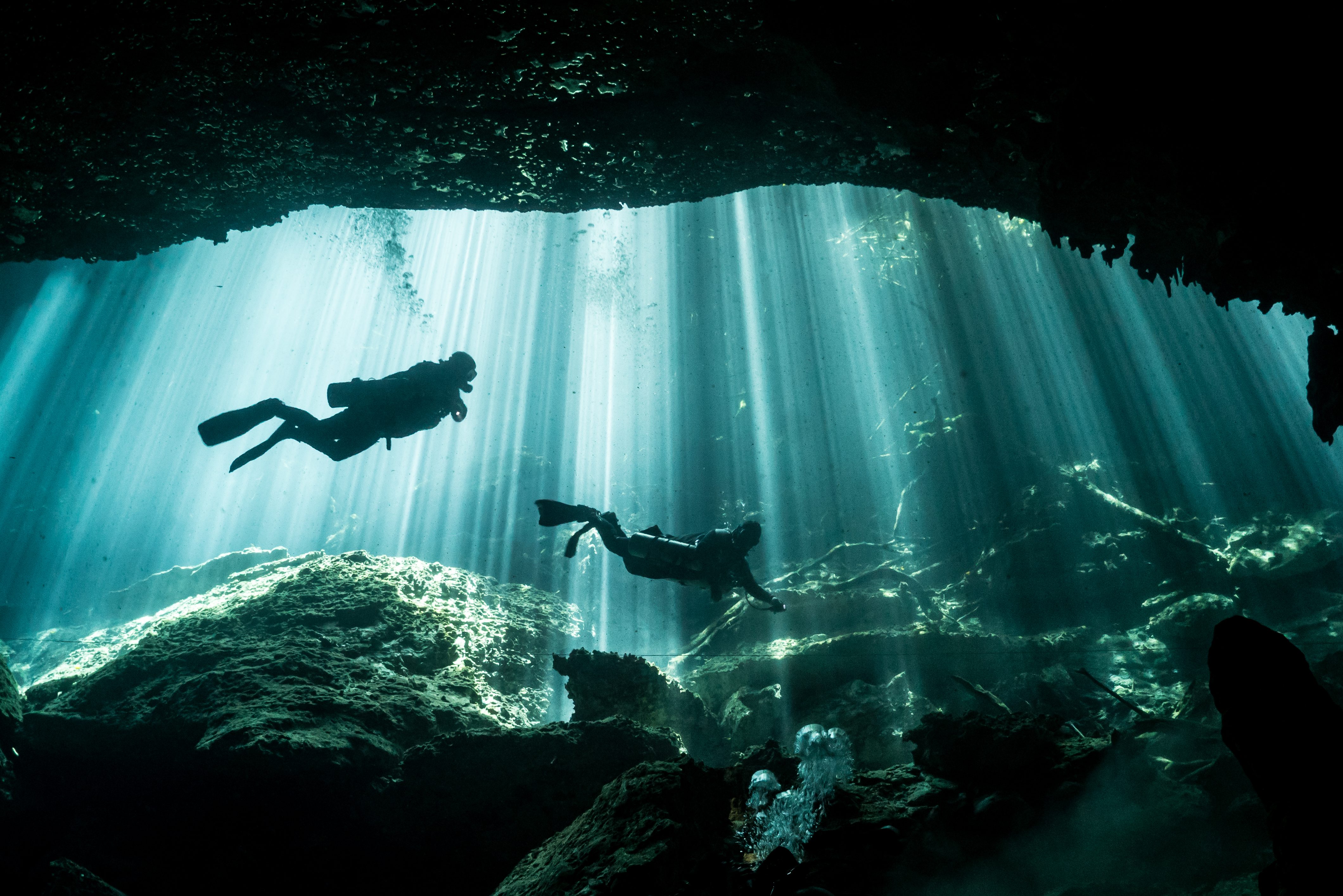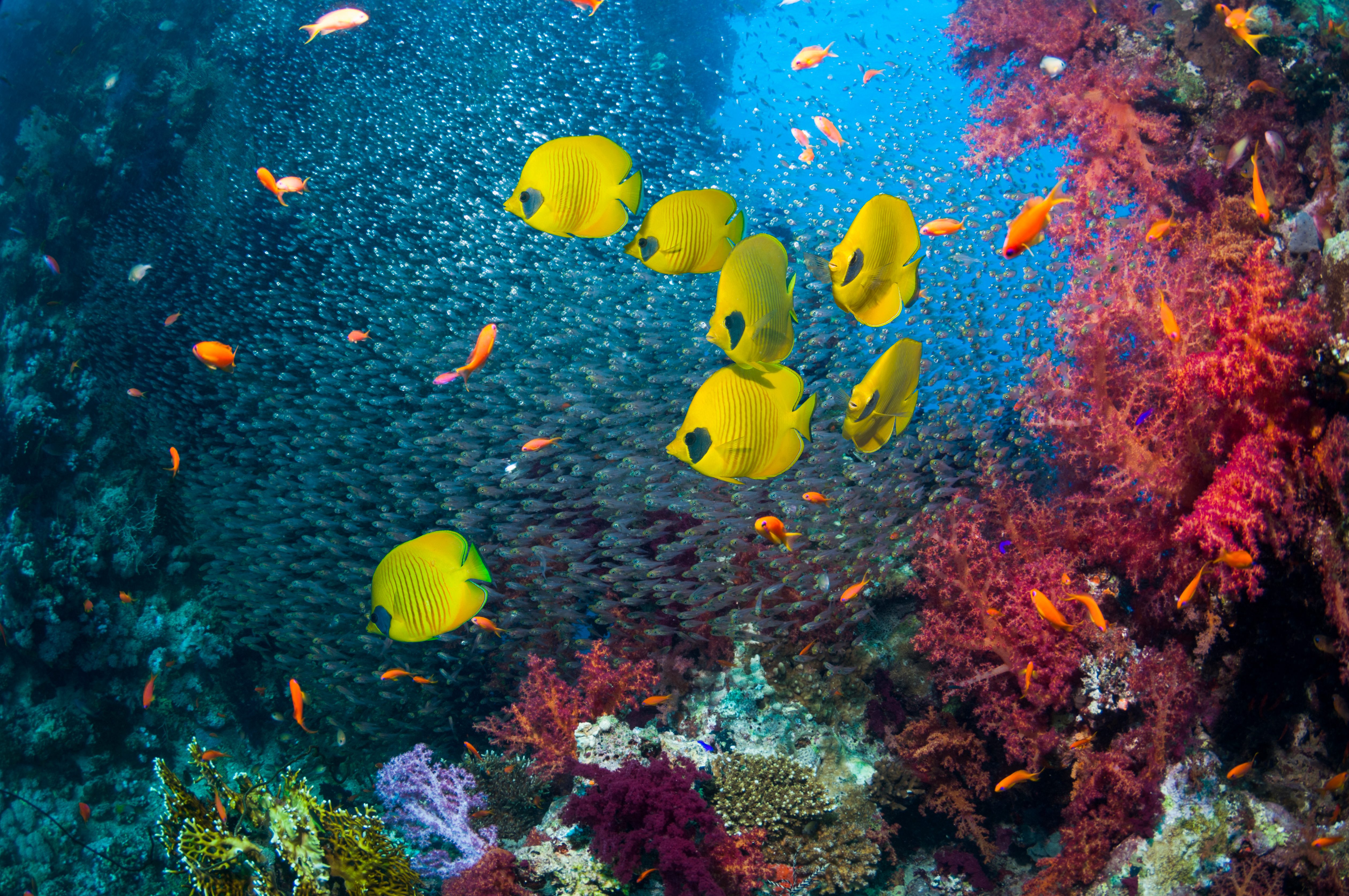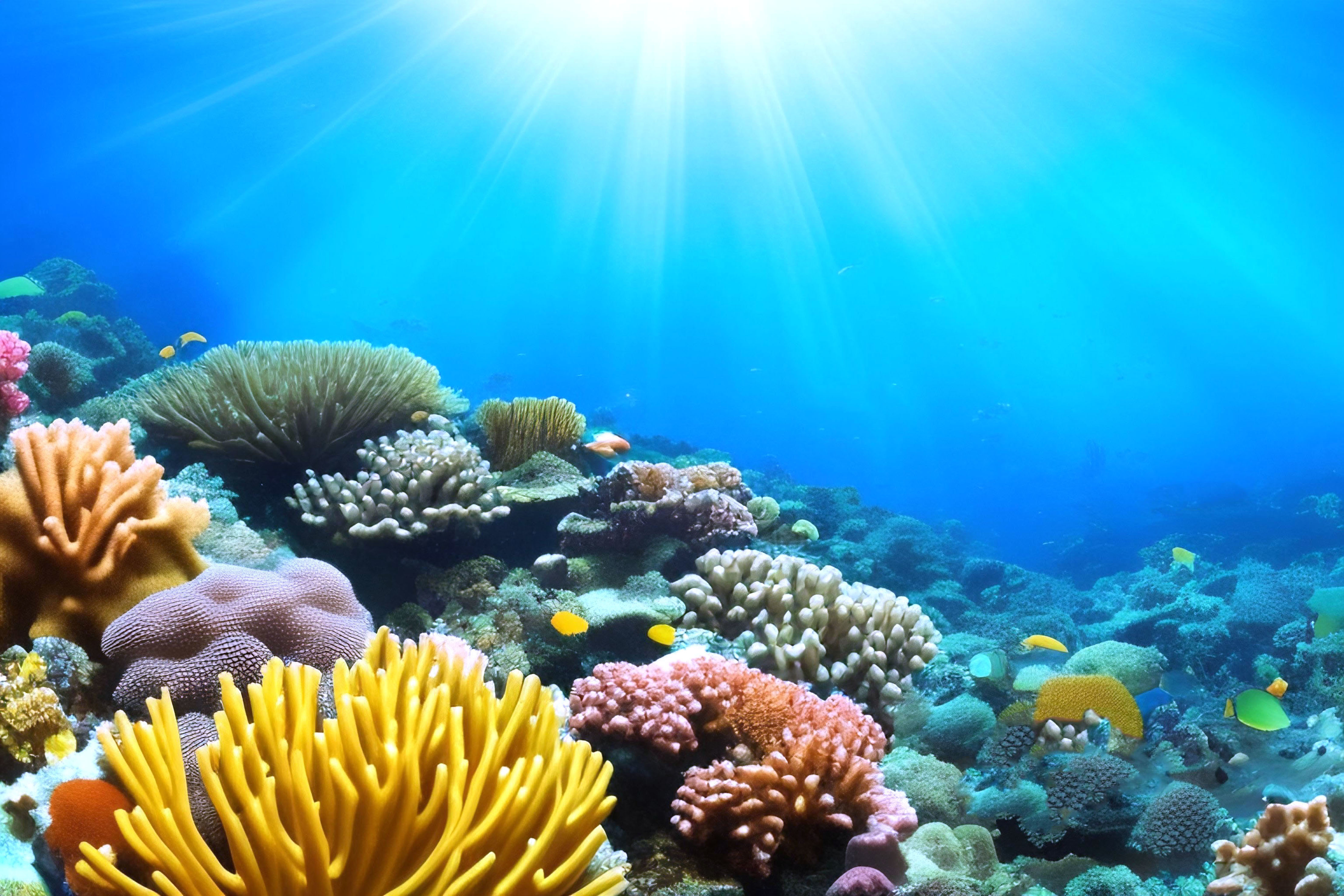Underwater Welder Salary: Unveiling The Earnings Of The Ocean's Skilled Workers
Have you ever wondered what it takes to earn a living deep beneath the waves? Perhaps you've seen stories or even films set in the ocean's depths, like "Underwater," the 2020 movie starring Kristen Stewart, where a crew of researchers scrambles for safety after an earthquake devastates their subterranean lab. That film, directed by William Eubank from a screenplay by Brian Duffield and Adam Cozad, was announced back on February 22, 2017. While it's a fictional tale of survival, the real world has its own incredibly specialized roles that operate in similar, if less dramatic, underwater settings. One such role that often sparks a lot of curiosity, and for good reason, is that of the underwater welder. People often ask about the money these professionals bring home, and it's a pretty interesting topic, to be honest.
It's true, the idea of working hundreds of feet below the surface, joining metal with sparks flying through water, sounds like something out of a science fiction story, and yet, it's a very real and very important job. These individuals are responsible for building, repairing, and maintaining critical structures that support our modern world, everything from oil rigs and pipelines to ships and bridges. It's a job that demands a unique blend of skills, courage, and a strong stomach, so it's only natural that the compensation for such a demanding line of work would be a point of interest for many.
So, if you're thinking about a career that truly stands apart, or you're just curious about what these brave men and women actually earn for their extraordinary efforts, you've come to the right place. We're going to break down the typical earnings for an underwater welder, look at what influences their pay, and even touch on what it takes to get into this rather specialized field. It's quite a unique path, and the financial aspects are just one part of the picture, you know?
Table of Contents
- What is an Underwater Welder?
- The Money Talk: Underwater Welder Salary Breakdown
- Life Below the Surface: The Realities of the Job
- Is This Career for You?
- Frequently Asked Questions
What is an Underwater Welder?
An underwater welder, also commonly called a commercial diver welder, is a professional who performs welding tasks while submerged in water. This isn't just about joining two pieces of metal; it involves working in incredibly challenging conditions, often with low visibility, strong currents, and extreme pressures. These folks are, in a way, like highly skilled construction workers, but their office is the ocean floor or deep beneath the surface of a river or lake. They work on a lot of different projects, you know, from fixing oil platforms to repairing ships, even working on underwater pipelines. It’s a very specialized kind of work that requires a lot of preparation and, well, nerves of steel.
Their work is absolutely vital for keeping a lot of our infrastructure going. Think about it: offshore oil and gas operations need constant maintenance, ships get damaged, and bridges have foundations that extend into the water. All these things need people who can get down there and fix them, and that's exactly what an underwater welder does. They combine the skills of a welder with the training of a commercial diver, creating a very unique and, frankly, dangerous combination of talents. They're basically the unsung heroes keeping things connected below the waves, which is pretty cool.
The Money Talk: Underwater Welder Salary Breakdown
So, let's get to the part everyone's curious about: how much money does an underwater welder actually make? The truth is, there's no single number, as earnings can vary quite a bit. But generally speaking, it's a job that pays very well, especially when you consider the training involved and the conditions they work in. It's not a typical 9-to-5 desk job, so the pay reflects that difference, you know? It's often talked about as one of those high-paying, high-risk jobs.
Starting Out: Entry-Level Earnings
When you're just starting out as an underwater welder, fresh out of training, your earnings might not be as high as what the seasoned pros make. However, they are still quite competitive compared to many other entry-level trades. A new underwater welder might expect to earn somewhere in the range of $40,000 to $60,000 annually. This figure can be influenced by where you find your first job, what kind of projects you're working on, and how much previous experience you might have in general welding or even just general labor. It's a starting point that allows you to gain valuable experience, which is really important.
Often, these initial roles might involve more support tasks or working on simpler repairs, allowing the new diver to get comfortable with the underwater environment and the specific tools. You're learning the ropes, basically, and building up your reputation. It's a bit like an apprenticeship, where you're proving your abilities and showing that you can handle the pressure, literally. The more time you spend doing the actual work, the more valuable you become, and that's when the earnings start to really climb, you see.
Seasoned Pros: Experienced Professionals
This is where the numbers start to get really interesting. For experienced underwater welders, those with several years under their belt and a proven track record, the salary potential can be quite impressive. Many experienced professionals can earn anywhere from $75,000 to $150,000 per year. Some highly specialized welders, especially those working on deep-sea projects or in very remote locations, might even see their annual income exceed $200,000. It's not unheard of, you know, for the truly skilled and dedicated ones.
These higher figures often come with more demanding assignments, longer periods away from home, and work in some of the world's toughest environments. They might be supervising teams, handling complex structural repairs, or working on emergency projects that require immediate attention. The more specialized your skills, like saturation diving or working with exotic materials, the more you can command in terms of pay. It's a direct reflection of the risk and the unique skill set involved, which is pretty clear.
What Affects Your Paycheck: Factors Influencing Earnings
Several things play a big part in how much an underwater welder takes home. It's not just about how long you've been doing the job. So, let's look at some of these key elements, because they really make a difference, you know.
Location, Location, Location: Where you work matters a lot. Areas with a lot of offshore oil and gas activity, like the Gulf of Mexico, the North Sea, or coastal regions in places like Brazil or Australia, tend to offer higher pay due to demand. Working internationally can also mean better rates, but it often comes with longer contracts and more time away from home. It's a bit of a trade-off, really.
Type of Work: The kind of project you're on can also influence your earnings. Working on deep-sea oil rigs, for instance, typically pays more than repairing a dock in a local harbor. Projects that involve saturation diving, where divers live in pressurized habitats for weeks at a time, command the highest rates because of the extreme conditions and the unique skills needed. These jobs are very intense, so the pay reflects that, basically.
Certifications and Specialties: The more certifications you have, and the more specialized your skills, the better your earning potential. Beyond basic commercial diving and welding certifications, having endorsements for specific types of welding (like flux-cored arc welding or shielded metal arc welding underwater), or for operating certain equipment, can significantly boost your value. Being able to do more things, and do them well, always helps your wallet, you know.
Experience and Reputation: As with many professions, experience is a big factor. The longer you've been in the field, and the more diverse your project history, the more attractive you are to employers. A good reputation for safety, reliability, and skill can also lead to better job offers and higher pay. People want to work with those they trust, especially in such a risky environment, so that's a big deal.
Company Size and Type: Working for a large, international commercial diving company might offer different pay structures and benefits compared to a smaller, local outfit. Larger companies often have more resources and can bid on bigger, more lucrative projects, which can translate to better pay for their employees. It just depends on the kind of operation, really.
Life Below the Surface: The Realities of the Job
While the salary figures for underwater welders can be very appealing, it's really important to look at the whole picture. This isn't a job for everyone, and the high pay comes with significant demands and risks. It's not just about the money; it's about the lifestyle, the challenges, and the dedication required. So, let's talk about what the job truly involves, because there's a lot more to it than just the pay, you know.
Getting Started: Training and Certification
Becoming an underwater welder isn't something you can just decide to do overnight. It requires extensive training and multiple certifications. First, you need to become a certified commercial diver. This training typically takes several months and covers everything from diving physics and decompression procedures to underwater tools and safety protocols. It's very thorough, and it has to be, given the environment these folks work in. You learn how to stay alive and work effectively down there.
After that, you need to be a skilled welder. Many aspiring underwater welders get their welding certifications first, becoming proficient in various welding techniques on land, before pursuing their commercial diving credentials. Some specialized schools offer combined programs that cover both aspects. These programs are often quite rigorous and costly, but they are absolutely necessary. You can learn more about commercial diving schools on our site, and it's a good idea to research the best paths for you, because it's a big commitment.
Risks and Rewards: A Close Look
The rewards of underwater welding, especially the financial ones, are clear. But the risks are just as real, and they are considerable. Underwater welders face dangers like decompression sickness (the bends), equipment failure, drowning, electrocution, explosions, and encounters with marine life. The environment itself is unforgiving, with strong currents, cold temperatures, and limited visibility. It's a job where you always have to be on your guard, you know, every single moment.
Despite these dangers, many who choose this path find the work incredibly rewarding beyond just the paycheck. There's a certain satisfaction that comes from performing complex tasks in such a unique environment. The camaraderie among dive teams is often very strong, as they rely on each other for their safety. Plus, the feeling of contributing to major infrastructure projects, knowing your work is essential, can be a huge motivator. It's a very challenging but also very fulfilling career for the right kind of person.
A Day in the Life: Work Environment
A typical day for an underwater welder isn't really typical at all. It depends heavily on the project. You might be working offshore on an oil rig for weeks or even months at a time, living on a vessel or platform. Other times, you might be on a smaller crew working on a local bridge repair, going home each night. The hours can be long and irregular, often dictated by weather conditions, tides, and project deadlines. You could be working at any time of day or night, which is just part of the deal.
The work itself involves a lot of preparation above water, followed by the actual dive. This includes checking equipment, planning the weld, and ensuring all safety protocols are in place. Once submerged, the work is physically demanding and requires immense focus. Communication with the surface team is constant, usually through a specialized helmet communication system. It's a very intense environment, and you have to be ready for anything, so that's something to consider.
Is This Career for You?
Considering a career as an underwater welder means looking at more than just the impressive salary figures. It means asking yourself if you're prepared for the rigorous training, the physical demands, the time away from home, and the inherent risks. It's a path for those who are physically fit, mentally tough, and have a genuine passion for both welding and working in challenging aquatic environments. If the idea of working beneath the waves, solving complex problems, and earning a substantial income truly excites you, then this unique profession might just be a perfect fit. It's a big decision, to be honest, but for some, it's absolutely the right one.
If you're interested in learning more about the specific skills and certifications needed, you might want to check out information from organizations like the Association of Diving Contractors International (ADCI), which sets safety and training standards for commercial diving. It's a good place to start your research, you know, to get the real facts. And to explore other unique career paths, you can always link to this page for more ideas and insights.
Frequently Asked Questions
People often have a lot of questions about underwater welding, so here are some common ones, you know, that come up quite a bit.
How much do underwater welders earn annually?
The annual earnings for an underwater welder can vary quite a lot, but typically, entry-level professionals might start around $40,000 to $60,000. Experienced welders with several years of work and specialized skills can see their income rise significantly, often ranging from $75,000 to $150,000 per year, and sometimes even more for those in highly specialized or deep-sea roles. It really depends on a lot of things, like where they work and what kind of projects they're on.
What are the requirements to become an underwater welder?
To become an underwater welder, you generally need two main things: first, certification as a commercial diver from an accredited school, which teaches you how to work safely underwater. Second, you need to be a certified welder, proficient in various welding techniques. Many people get their welding skills on land first, then pursue the commercial diving training. It's a pretty intense training process, but it's essential for the job, you know.
Is underwater welding a dangerous job?
Yes, underwater welding is considered a very dangerous job. Workers face risks like decompression sickness, electrical hazards from their equipment, the possibility of drowning, and even explosions from gas pockets. The underwater environment itself presents challenges like strong currents, poor visibility, and cold temperatures. Because of these significant risks, extensive training, strict safety protocols, and constant vigilance are absolutely necessary for those in this line of work. It's definitely not for the faint of heart, you know.

Underwater

The Most Incredible Underwater Photos Ever Taken | Reader's Digest

Underwater Scene Stock Photos, Images and Backgrounds for Free Download